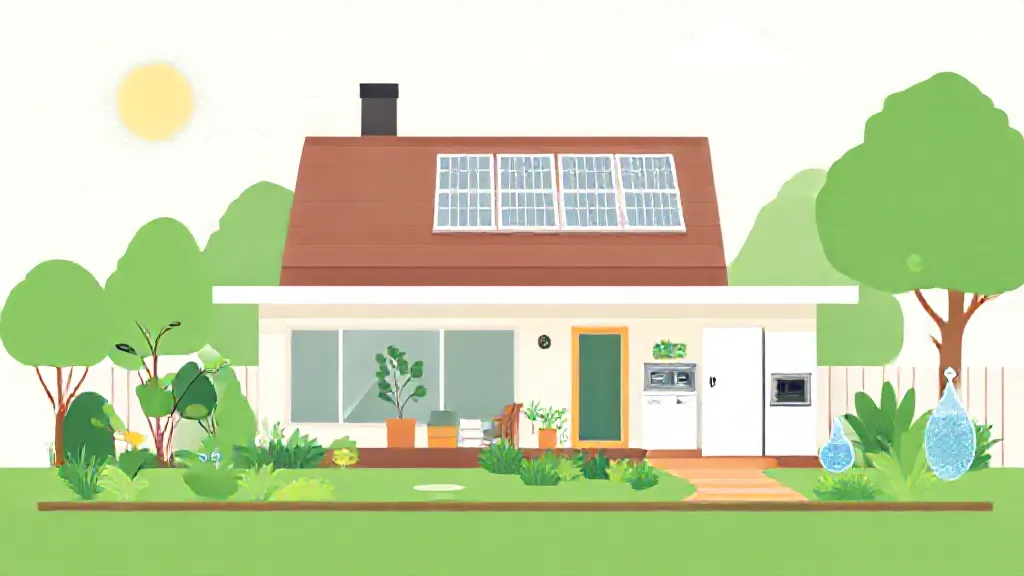Eco-friendly homes are increasingly recognized as a vital solution for reducing energy consumption and promoting sustainability. These homes are designed with materials and technologies that minimize environmental impact while maximizing energy efficiency. By integrating renewable energy sources, enhancing insulation, and utilizing smart technologies, eco-friendly homes can significantly lower energy bills and reduce the carbon footprint.
The Role of Renewable Energy in Eco-Friendly Homes
One of the most impactful features of eco-friendly homes is the incorporation of renewable energy systems, such as solar panels and wind turbines. Solar energy, in particular, has gained popularity due to its accessibility and decreasing costs. Homeowners can harness sunlight to generate electricity, which not only powers their homes but can also lead to energy independence.
For example, a typical solar panel system can reduce electricity bills by up to 70%, making it a financially sound investment as well as an environmentally friendly choice.
Energy-Efficient Appliances: A Smart Investment
Another critical component of energy-efficient homes is the use of energy-efficient appliances. These appliances are designed to consume less energy while providing the same level of performance as their conventional counterparts.
For instance, ENERGY STAR-rated appliances can save homeowners hundreds of dollars per year on utility bills. By replacing old appliances with modern, energy-efficient models, homeowners can drastically reduce their overall energy consumption and contribute to a more sustainable future.
Effective Insulation: Keeping Energy Costs Low
Proper insulation is essential for maintaining a comfortable indoor environment and minimizing energy loss.
Eco-friendly homes often utilize advanced insulation materials, such as spray foam or cellulose, which provide superior thermal performance. This means that homes stay warmer in the winter and cooler in the summer, reducing the need for heating and cooling systems to work overtime. According to the U.
S. Department of Energy, effective insulation can reduce energy costs by 20% to 30%, showcasing its importance in energy conservation.
Smart Home Technologies: Automating Energy Efficiency
The rise of smart home technologies has transformed how homeowners manage energy consumption.
Smart thermostats, for example, learn user preferences and adjust heating and cooling settings accordingly, optimizing energy use based on occupancy and time of day. Additionally, smart lighting systems can automatically turn off when rooms are unoccupied. By integrating these technologies, eco-friendly homes can achieve significant energy savings while enhancing convenience for residents.
Water Conservation: An Overlooked Aspect of Eco-Friendliness
While energy efficiency is often the focus of eco-friendly homes, water conservation is equally important. Many eco-friendly homes incorporate rainwater harvesting systems and greywater recycling, which reduce the demand for municipal water supplies. By utilizing these systems, homeowners can decrease their water bills and lessen the environmental impact associated with water usage.
Moreover, landscaping with drought-resistant plants can further minimize water consumption, creating a holistic approach to sustainability.
The Impact of Eco-Friendly Materials on Energy Efficiency
The choice of building materials plays a significant role in the energy efficiency of eco-friendly homes. Sustainable materials, such as bamboo, reclaimed wood, and recycled steel, not only reduce the environmental impact of construction but also contribute to energy savings.
For example, using high-performance windows made from low-emissivity glass can minimize heat transfer, reducing the need for heating and cooling. By selecting eco-friendly materials, homeowners can create a healthier living environment while promoting energy conservation.
Government Incentives and Support for Eco-Friendly Homes
Governments around the world are increasingly offering incentives to encourage the construction and renovation of eco-friendly homes.
Tax credits, rebates, and grants for renewable energy installations and energy-efficient upgrades are designed to make sustainable living more accessible. Homeowners who take advantage of these programs can significantly reduce the upfront costs associated with building or renovating their homes, making eco-friendly options more appealing.
The Future of Eco-Friendly Homes in Energy Conservation
As awareness of climate change and environmental degradation grows, the future of eco-friendly homes looks promising.
Innovations in technology and materials continue to evolve, offering even more efficient solutions for energy conservation. By adopting sustainable practices and embracing eco-friendly designs, homeowners can play a crucial role in reducing energy consumption and combating climate change, ensuring a healthier planet for future generations.
